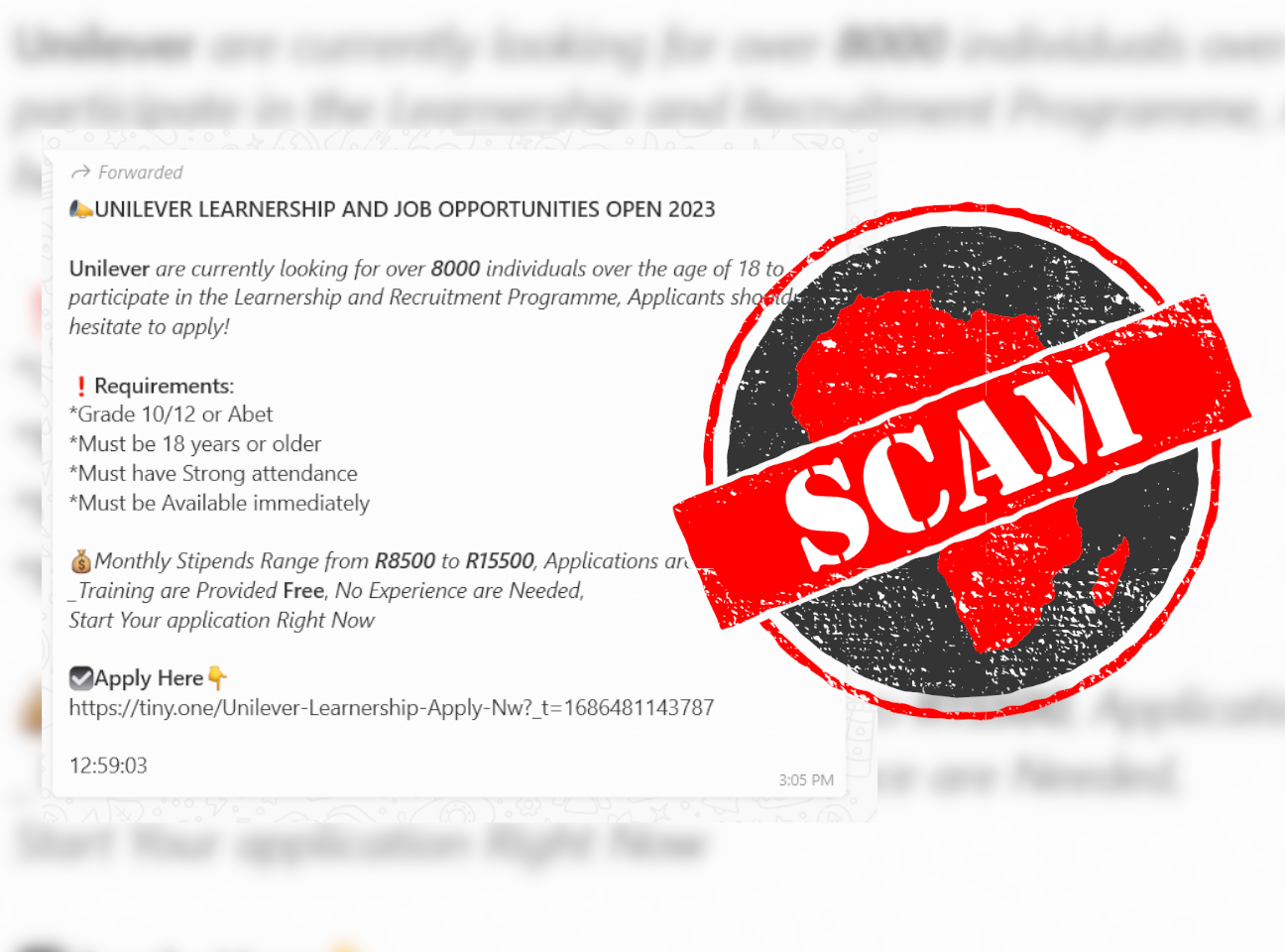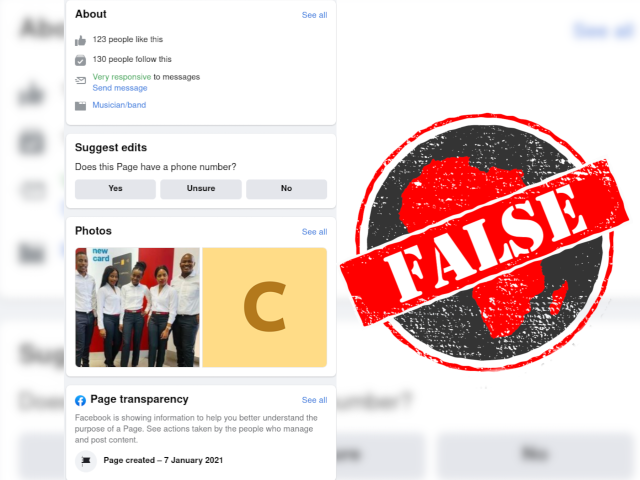IN SHORT: Unilever is once again warning social media users not to fall for a job scam using its name. The ads claim the company is recruiting people for learnerships and job opportunities. This is not true.
Unilever is looking for over 8,000 people older than 18 to take part in its learnership and recruitment programme. That’s according to a message that was sent to Africa Check’s WhatsApp line in June 2023.
Unilever is a multinational consumer goods company headquartered in London, UK. Some of its brands found in South Africa include cleaning products such as Handy Andy, Sunlight and Skip.
“UNILEVER LEARNERSHIP AND JOB OPPORTUNITIES OPEN 2023,” the message says. It lists some requirements for applicants and claims that monthly salaries range from R8,500 to R15,500.
It also says: “Applications are Free_,_Training are Provided Free, No Experience are Needed, Start Your application Right Now.”
The message also includes a link for applications, which takes readers to a website called learnerships.xyz.
The same message has also been shared on Facebook and has been doing the rounds in South Africa.
But is this job ad legit? We checked.

Signs of a scam
There are a few red flags that indicate the job ad is a scam.
The message has multiple grammatical and punctuation errors, with random capitalisation, which you wouldn’t see on official job ads from big companies like Unilever.
The link is also a giveaway that the post might not be legit. It takes readers to an unofficial-looking website and doesn’t redirect to Unilever’s verified site.
Once readers click on the link, they see a simple website featuring a banner and an application form that asks for their gender, first name, last name, email, phone number and country.
Unverified websites like this are often made by a free content management system and site owners use these to earn money from views and clicks. The application form could also be an attempt to steal personal information.
Job seekers should look for opportunities on Unilever’s careers page
Unilever is no stranger to job scams. In 2018, the company sent out a post on its official careers Facebook page warning its followers about fraudulent job opportunities in Kenya.
In 2020, the company posted a recruitment fraud warning on their official Facebook page, saying: “There have recently been a number of recruitment frauds operating in different parts of the world where individuals are contacting job seekers claiming to represent Unilever, offering them roles and then inevitably asking for payments to cover a range of expenses and administration costs.”
A similar warning about recruitment scams has been posted on the company’s website.
Unilever advises readers to find available positions on its careers page.
Not sure if the post you see on social media is a scam? Follow these tips on spotting Facebook scams.
Republish our content for free
For publishers: what to do if your post is rated false
A fact-checker has rated your Facebook or Instagram post as “false”, “altered”, “partly false” or “missing context”. This could have serious consequences. What do you do?
Click on our guide for the steps you should follow.
Publishers guideAfrica Check teams up with Facebook
Africa Check is a partner in Meta's third-party fact-checking programme to help stop the spread of false information on social media.
The content we rate as “false” will be downgraded on Facebook and Instagram. This means fewer people will see it.
You can also help identify false information on Facebook. This guide explains how.





Add new comment